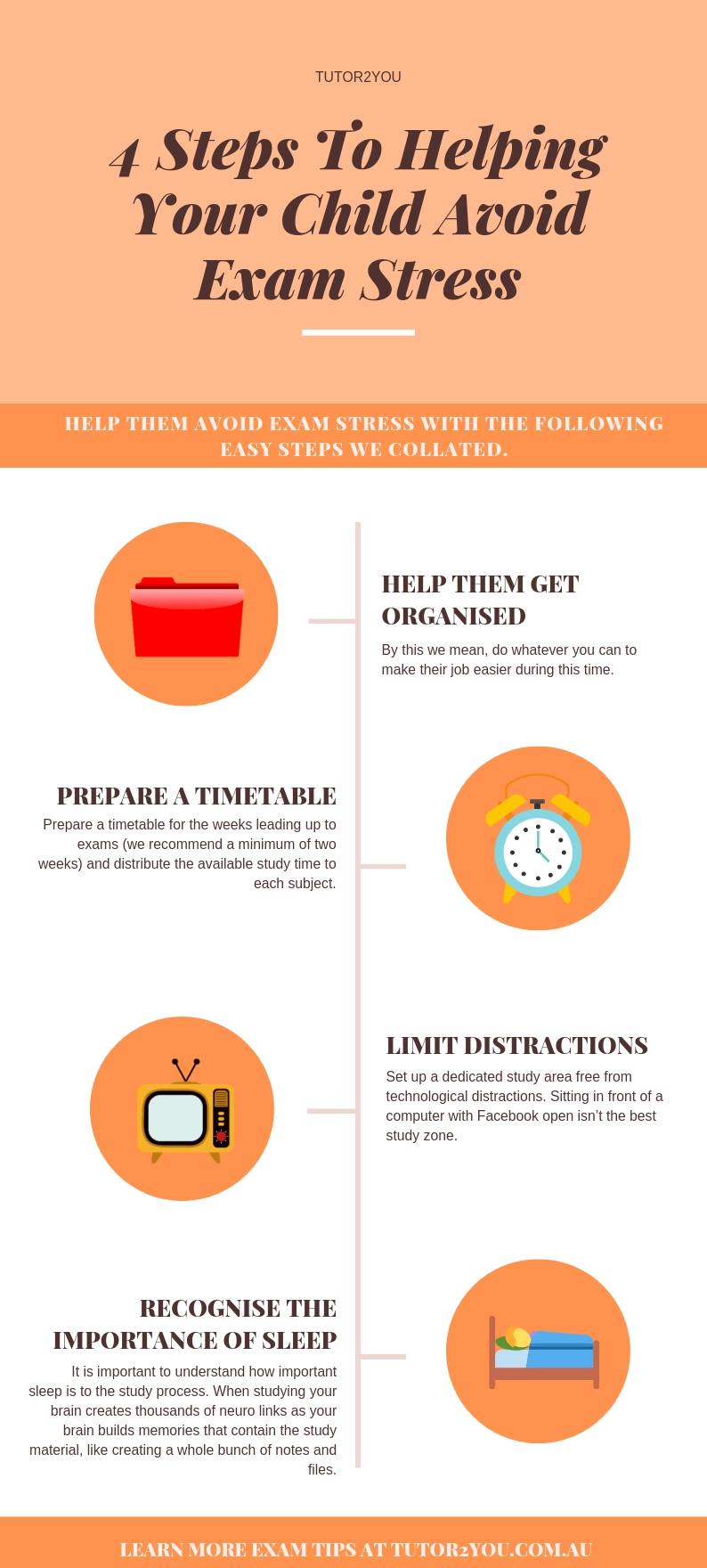
4 Steps To Helping Your Child Avoid Exam Stress
With the end of the term fast approaching many students are starting to prepare for their upcoming exams. Whilst the extent of the end of term exams vary with age, even the youngest of students can benefit from a little bit of structure leading into this period. Help them avoid exam stress with the following easy steps we collated.

Here are the 4 steps to helping your child avoid exam stress
Help them get organised
By this we mean, do whatever you can to make their job easier during this time. Something as simple as ensuring their pencil case has everything is one less thing for them to worry about (or forget about). In some exams pencil cases may not be permitted, in these cases clear plastic lunch bags serve as an acceptable alternative.
Some students become agitated leading into exams and often innocently quizzing them on what exams are on when can frustrate them. But there is a simple way around this, keep an eye on the school newsletter as you approach the end of the term for any updates, or email their teachers to find out when exams are on, and whether there are any special requirements that you should be aware of when helping your child prepare.
Prepare a timetable
This is one of the most powerful ways to prepare for an exam. Prepare a timetable for the weeks leading up to exams (we recommend a minimum of two weeks) and distribute the available study time to each subject.
- Taking stock of the realistically available time to prepare and subdividing this amongst the relevant subjects will help maintain balance
- If your child appears to be struggling with studying one subject for too long in one stint, encourage them to have a break from that one, and study a different subject for a while
- As exams get closer use the final day before the exam to focus on that subject only
Limit distractions
When leading into exams try to limit any distractions. Obviously, you don’t have control over everything, but limit what you can. For example, if your child has been studying all afternoon, let them excuse themselves from the washing up (you might not want this to become a habit) but after a long afternoon of study, it is beneficial to relax and let everything sink in.
Set up a dedicated study area free from technological distractions. Sitting in front of a computer with Facebook open isn’t the best study zone.
Recognise the importance of sleep
It is important to understand how important sleep is to the study process. When studying your brain creates thousands of neuro links as your brain builds memories that contain the study material, like creating a whole bunch of notes and files.
When you go to sleep your mind will begin to reinforce these newly formed links, essentially filing all the notes away. It is not uncommon for a student not to ‘get something’ one night, then wake up the next morning with renewed clarity.
Need help?
If your child is struggling, Tutor2you has private in-home tutors available across Brisbane, Melbourne and the Gold Coast specialising in Maths, English, Study Skills and more.
Click here to find out more or Book your Free Consultation today and find out how your local tutor can help get your child on the right track.


